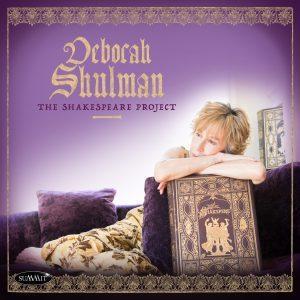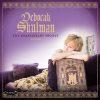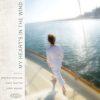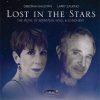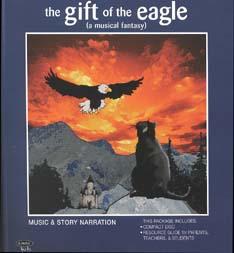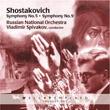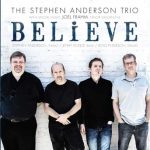The Shakespeare Project – Deborah Shulman
The Shakespeare Project – Deborah Shulman
Shakespeare set to vocals!…and it is BRILLIANT! The vocals are exquisite and the band is LA-top notch…featuring wonderful treatments from Jeff Colella with:
Deborah Shulman, VOCALS;
Jeff Colella, Piano; Larry Koonse, Guitar; Abraham Laboriel, Chris Colangelo, Bass; Bob Sheppard, Flute, Clarinet, Soprano Saxophone & Bass Clarinet; Kendall Kay, Joe La Barbera, Drums; Bob McChesney, Trombone
From Vocalist Deborah Shulman (from the notes):
In 1987, my friend Lance Roberts directed a staged version of Cleo Laine and John Dankworth’s iconic recording of WORD SONGS. Released in 1978, Laine and Dankworth had previously recorded many of the same songs for SHAKESPEARE AND ALL THAT JAZZ in 1964.
Armed with my strong theatre background (including Shakespeare), I was not so much intimidated by the poetry, but certainly understood the complexities of joining the poetry with the music; the goal, to convey the meaning and essence of the words through the music.
With my 2012 release “Lost in the Stars”, the gifted arranger/composer Jeff Colella worked with me to meld classical music, theatre, and jazz.
This journey has been filed with many blessings; from reconnecting with the great bassist Abraham Laboriel (who, much to my delight, agreed to join this party), to working with our great Los Angeles musicians Larry Koonse (Guitar), Kendall Kay (Drums), Chris Colangelo and Bob Sheppard (Saxophone/Reeds), and Bob McChesney (Trombone).
REVIEW:
“When most people think of Shakespeare these days, if at all, they think of Bob DeNiro on Saturday Night Live going ‘yeah, Shakespeare’ while making the jerk off motion. Shulman is no mere art chick going ‘look at me’ as you can tell by the first call jazzbos she got to gather around this fire. Actually following in Cleo Laine’s 1964 footsteps, Shakespeare and all that jazz isn’t all that outré a concept. If you didn’t know Lord Buckley’s fave playwright was the one behind the words here, you wouldn’t get your anti-egghead hat on in approaching it. This is the path to take if you want to step outside the lines and do it with some real style and class. Well done.”
-Midwest Record by Chris Spector
REVIEW:
William Shakespeare’s works have generated many musical endeavors. Duke Ellington’s Such Sweet Thunder (Columbia Records, 1957) and Leonard Bernstein’s score for West Side Story are among those which come to mind. In 1941, British composer Arthur Young recorded Shakespeare in Swing (Decca Records, 1941), which featured his compositions over Shakespeare’s words. And, in 1964, celebrated British reed player John Dankworthand his wife, Cleo Laine, recorded Shakespeare and All that Jazz, (Fontana Records, 1964), a collection predominantly of Dankworth’s jazz tunes with lyrics taken from Shakespeare.
With The Shakespeare Project, vocalist Deborah Shulman not only resurrects and refreshes some of the Young/Dankworth-Lane efforts, but adds some terrific new originals from pianist/co-producer, Jeff Colella.
Starting with a track which combines Dankworth’s “All the World’s a Stage” around the up-tempo “If Music Is the Food of Love,” it is obvious that this is not going to be a novelty or an over-intellectualized effort. The upbeat tone continues with the modal and swinging, “Blow, Blow That Winter Wind,” which features tasty guitar work from Larry Koonse. Dankworth’s “Dunsinane Blues” is an azure head-tilter with Shulman and pianist Collela soulful. The ballad “Shall I Compare Thee to a Summer’s Day” is a textured, dramatic highlight on which Shulman and all shine bright.
A challenge which is met exceptionally well here is Shulman’s vocal approach to the 16th century lyric. Her voice is very attractive and swinging. The manner in which she caresses the lyrics is exceptional.
Dankworth’s “Who Is Sylvia?” is an inquisitive, theatrical Laboriel/Shulman duo. His “You Spotted Snakes” is darker fare with tasty ensemble backing. “When to the Sessions of Sweet Silent Thought,” a Colella original, is an introspective piano/vocal duet. Victor Young’s, “Sigh No More Ladies” is a bossa nova swinger with a fine Bob McChesney trombone solo and “Oh, Mistress Mine” is delivered in a lilting swing-groove with Shulman’s ace piping and another fine McChesney ride. Duke Ellington and Billy Strayhorn’s “My Love Is a Fever” and the swinging “Take All My Loves” were also recorded by Dankworth and Lane and are given a fine fresh coat here.
Although the lingo served here is near a half-millennium old, Shulman and her team make this rendering as delicious as fresh-baked Elizabethan pie. Go ahead and pull out a plum.
-All About Jazz by Nick Mondello
REVIEW:
“In two of her prior albums, vocalist DEBORAH SHULMAN offered up a collection of songs by Bobby Troup, and one that concentrated on material written by Kurt Weill or Stephen Sondheim. The focus of her new album, The Shakespeare Project (Summit – 739) are the songs and sonnets written by William Shakespeare. The inspiration for this compilation comes from a similar project Shakespeare: And All That Jazz recorded in 1964 by Cleo Laine and Johnny Dankworth. For her album, Shulman had instrumental support from Jeff Colella on piano, Abraham Laboriel or Chris Colangelo on bass, Joe La Barbera or Kendall Kay on drums, Larry Koonse on guitar, Bob Sheppard on reeds and Bob McChesney on trombone. The instrumentation varies from track to track. Five of the twelve selections are adaptations of the Dankworth arrangements, two have music by Duke Ellington and Billy Strayhorn, three were set to music by Arthur Young and the other two by Colella. Shulman has the dramatic sensitivity to effectively address this demanding material, and the voice to make it sound right. The arrangements are jazzy, but do not detract from the words of The Bard. This is a fine addition to the small catalog of similar projects, most notably the one by Laine and Dankworth, and one by Maxine Sullivan and Dick Hyman.”
-Jersey Jazz by Joe Lang
REVIEW:
Anyone up for The Great Stratford-Upon-Avon Songbook?
You might be after giving a listen to this brilliant album by vocalist Deborah, as she takes lines from Shakespeare plays such as Twelfth Night, Much Ado About Nothing and A Midsummer Night’s Dream and teams them with either fresh material by pianist Jeff Colella, or with his arrangements of material from the likes of Duke Ellington, Arthur Young and John Dankworth. Teamed with a rotating cast of Larry Koonse/g, Abraham Laboriel-Chris Colangelo/b, Bob Sheppard/woodwinds, Bob McChesney/tb and Kendall Kay-Joe La Barbera/dr, Shulman brings The Bard into an intimate and gently swinging jazz club atmosphere. After all, all of the world’s a jazz stage!
Her rich voice warmly swings with the band with floating flutes on the sublime “Our Revels Now Are Ended” and “All The World’s A Stage/If Music Be The Food Of Love” and she sounds sly along with McChesney’s trombone on “Take All My Loves.” In smaller settings, she is hip with Laboriel in a nimble duet “Who Is Sylvia” and intimate with Colella on an upbeat “When To The Sessions Of Sweet Silent Thought.” Koonse’s guitar gives a rich samba feel to “Sigh No More Ladies” and the team is in a nice Basie mood for “Oh Mistress Mine.” All through the album, Shulman sounds confident, clear and comfortable with the 400+ year old lyrics.
Fresh approach, fresh material and a fresh idea. Is Christopher Marlowe next?
-JazzWeekly by George Harris
REVIEW:
The cover of her new collection, The Shakespeare Project, shows vocalist Deborah Shulman snuggling up to a big, gold-embossed volume of the Bard’s works—and in her singing she also seems to be embracing his output, comfortably stretching out. I’ve very much enjoyed her earlier albums that have evidenced her as an intelligent, classy interpreter of standards and more, with jazz sensibilities. Adventurous and warm-spirited, flexible of voice, her ease with the great writer’s work comes as no surprise to me. With co-producer/arranger/pianist, Jeff Colella, things are accessible and tasteful, and the general ambience is laidback; the music that’s the food of love plays on without ever threatening to upstage the words.
The contents are a mix of sonnets and excerpts from the plays, mostly items that will be familiar to even those with a more casual acquaintance with the oeuvre. As did the singer/actress herself, I first encountered some of this territory in musicalized form when it was in the capable hands of the grand British jazz singer Cleo Laine with her late husband, composer/musician John Dankworth. They laid the groundwork in early recordings, but, of course, many composers have been inspired to think that where there’s Will, there’s a way to make his words sing. The Dankworth compositions only make up about half of what’s presented (including his own original hip take on Macbeth, “Dunsinane Blues”), as others feature the music of either Arthur Young or the legends Duke Ellington and partner Billy Strayhorn. Colella himself capably took on musicalizing two of the sonnets: the familiar romantic choice that asks “Shall I compare thee to a summer’s day?” and the one that starts “When to the sessions of sweet silent thought…” First-rate jazz instrumentalists add delicate and cool touches, with outstandingly mood-enhancing featured work by Larry Koonse on guitar.
Ms. Shulman’s comfort level with the material comes off as a given, as does respect for the blueprints set by the Laine/Dankworth high bar. But this is no slavish imitation. Consistently bringing out details, this isn’t a showy showcase for the artists. It is often a case of restraint so that what is front and center: the text and the general mood of each piece. They are colored in subtle ways by the singer as she emphasizes key words by kind of sighing into them, giving a silvery spin with a light, high tone or lingering over a particularly delicious phrase. Accents come, too, from the instrumentalists and, with the no-rush/no-fuss approach, we can take it all in, the words have time to “breathe” as we are given time to absorb them, also, and to react and appreciate them and their architecture. In many notable instances, the deepest Shulman tones are especially impactful. Also in her tool-kit is a playful edginess for the sonnet that stays in the unpleasant symptoms of romance and its risks: “My love is as a fever.”
Occasional liberties are taken in construction, like repeating a line from Shakespeare’s original to help the music flow or to provide a more satisfying or full-circle conclusion rather than have a dangling-in-mid-air feeling, and thus all’s well that ends well. With excerpts sampling several different plays (and a bit of double-dipping), you’re bound to find some favorites favored with fresh musicality.
Shakespeare and Shulman are a good match. Should you be resistant and need to be “sold” on lending him an ear, she makes an ideal salesperson. And, if you’re pre-sold, prepare to be presented with something sublime.
-Talkin’ Broadway by Rob Lester
If you are interested in purchasing an individual track from this cd, visit ![]()



